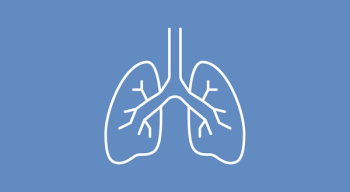
Clinicians should consider a rapid taper approach for patients with cancer who exhibit repeated signs of opioid misuse, an expert said.

Clinicians should consider a rapid taper approach for patients with cancer who exhibit repeated signs of opioid misuse, an expert said.

Topical treatments may help ease chemotherapy-induced peripheral neuropathy, but more research is needed.

With many patients utilizing medical cannabis, it is important for nurses to be aware of potential drug-drug interactions, an expert said.

Docetaxel was associated with lower rates of peripheral neuropathy compared with paclitaxel for Black patients with breast cancer.

A nurse practitioner discusses how breast cancer treatment can impact sexual health, and how nurses and APPs can guide patients through these effects.

“You can control where you focus your attention,” said Anne M. Reb, PhD, NP, who recently presented on a nurse-led intervention for patients who experience fear of cancer recurrence.

Research is analyzing the effect of imtermittent fasting on quality of life outcomes in patients undergoing radiation therapy.

Pain management specialists were rarely consulted for cancer-related pain, a recent study showed.

Oncology nurses play a crucial role in monitoring the severity and frequency of treatment-related symptoms, particularly nausea.

A nurse practitioner discussed considerations for managing aromatase inhibitor-related joint pain in patients with breast cancer.

Oncology nurses should inform patients about adverse events and the signs of interstitial lung disease before treating their breast cancer with T-DXd.

Chlorhexidine dressings, along with proper patient education, are key in preventing central line-associated blood stream infections in patients with cancer.

Trastuzumab deruxtecan improved time to deterioration for pain and other categories, in patients with HER2 low/ultralow breast cancer.

For patients with early breast cancer, hypofractionated radiation was noninferior to normofractionated radiation regarding lymphedema risk.

The use of ruxolitinib presented improved rates of skin/joint responses, cGVHD responses, patient-reports, low NRM, and high FFS in patients with refractory sclerotic cGVHD.

Even with a low rates of cardiovascular adverse events in patients treated with immune checkpoint inhibitors, cancer care teams should still focus on multidisciplinary approaches and early recognition of these events.

Oral cannabis extract may be useful as an adjunct for chemotherapy-induced nausea and vomiting, although it may be associated with additional adverse events.

Oncology nurses are instrumental in assessing cancer-related fatigue and educating patients about potential interventions.

Compared with available literature, the rates of medication-related osteonecrosis of the jaw were higher in patients with breast cancer and bone metastases treated with antiresorptive therapy.

Higher corticosteroid peak dose may worse progression-free and overall survival in several tumor types including melanoma, non-small cell lung cancer, and others.

A learning approach integrating time series and static data may improve understanding of breast cancer outcomes.

The Immune Effector Cell Encephalopathy score and keeping a close eye on patients’ symptoms are critical when monitoring for potential ICANS during lymphoma treatment.

A behavioral intervention led by oncology nurses alleviated dyspnea in patients with advanced lung cancer, suggesting further research for long-term effects.

A multidisciplinary approach to adverse effect management addresses many needs patients with gynecologic cancers may have while undergoing treatment.

Although oncology nurses do not relay the initial information around impacted fertility with cancer treatment, they play an important role in guiding patients with any concerns around this topic.

The complexity of postoperative delirium in patients with head and neck cancer may require several strategies including pain management and nutritional support, among others.

Donna Catamero, ANP-BC, OCN, CCRC, discusses the importance of quickly identifying and managing adverse effects from CAR T-cell therapy in patients with multiple myeloma.